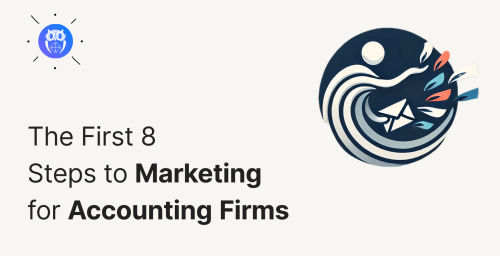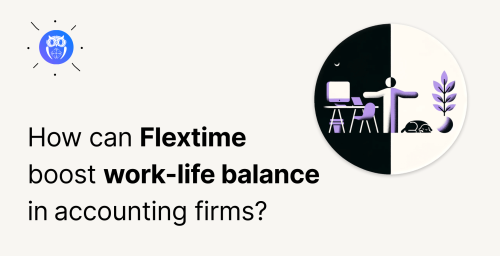Estonia has over 6,000 accounting firms. Most are small, up to 10 employees. That’s when many face their first growth barrier. The bravest overcome the barrier, and one of them is CHK.
In 19 years, the now top-rated accounting firm has grown into an international company with 60 employees. They have sister companies in Finland, CH Konsultointi Oy, and Lithuania, JA&CH Konsultacijos UAB.
However, the seemingly easy journey has had hardships. The CEO of CHK, Christer Haimi, talked about the challenges they have overcome to get to where they are today so that others can learn from their mistakes.
Why aren’t our accounting firms growing?
“Many Estonian accountants are not entrepreneurs but specialists who created jobs for themselves,” says the CEO of CHK. “Let’s call them dreamers. They don’t want to grow because it requires extra work. They have their portfolio, and the company will cease to exist when they retire. Of course, every entrepreneur has personal ambitions and doesn’t necessarily have to focus on growth.”
Individual entrepreneurs aren’t the only problem. Small firms often get stuck at 6-8 employees because then it’s time to become a manager. “Managers handle a single room of accountants, but as you grow bigger, it’s time to focus on the managing processes,” Haimi knows from experience.
Small firm managers carry too much responsibility
“I would advise my past self to realize when you start managing and not do everything yourself,” recalls Christer Haim. “If I had to start a company again, I would start distributing my tasks to others much earlier and not do everything myself because I think I know best.”
According to Haimi, a lack of management stops accounting firms from growing. “Managers are often accountants in addition to their role. The best grow their firm to 10 employees at such a high tempo. I, a fool, reached 18 people before I realized that I couldn’t continue like this. As you grow, you must start managing processes,” he says.
CHK’s rapid growth had its price. The first lesson was to value and listen to employees more.
“Clients were my priority, and employees came in second. I’m embarrassed because they were looking for attention,” he admits. “Involve an assistant in management who can help with the processes.”
Managers are in the dark
Christer Haimi has experience in what it’s like to grow a company without the necessary information. “I managed the company on trust. Every accountant had Excel spreadsheets for their work, and they sent them to me. This kind of process management was beyond me,” he recalls.
“We had about 2,000 monthly tasks, and I didn’t know if they were done. I couldn’t go on like this. The company can’t grow if there is no control.” So, Haimi started looking for a software solution.
“Without software and data, you’re in the dark. Employees do their job well, but there are no profits. The software gives you information about where time and profits are disappearing. A single database shows you important data for management,” Christer advises.
You have to start with the right tools
“There are many routine tasks in accounting that can be automated without AI. The sooner you start with automating, the easier it is. The software shows you business-critical information, and you’ll get the benefits soon.”
“Structured processes ensure high-quality service, which creates efficiency because you focus on the agreed tasks. Your company’s revenue can increase thanks to charging for the work done.”
“If I had to start over, I would start to use Uku immediately,” Haimi admits.
CHK was the second user of Uku, the accounting practice management software created in cooperation with accountants. “When I talked to Uku’s creators, I saw they were doing the right thing. They asked us for input, and we helped design the software for accounting firms.”
Standardized processes make life easier for managers and accountants
“Standardized work processes mean efficiency, transparency and clarity,” the CEO of CHK emphasizes.
“We’ve had situations where every employee who worked with a new client had to start from the beginning because of lack of information. There was no clarity in who would take responsibility for a task.”
“If we were lucky, tasks were dismissed or resolved themselves. It was pure chaos. At that moment, I realized managing everything myself is not sustainable.”
Christer presents how standardized processes help when an accountant goes on vacation: “The accountant taking over a client has all the information. When a client went through several accountants, everyone put their soul into it. The result was very mixed, and service quality suffered.”
“Without Uku, we would need more employees and profitability would suffer. Managing tasks would require more work. It would also be difficult to grow because it would bring more responsibilities,” Haimi reflects.
Digitalization makes growth possible
“At our high, we got 150 new clients yearly,” he recalls. “It’s like adding a medium-sized accounting firm a year. It’s not easy, but you don’t realize how difficult it is when you’re in business. Looking back on the year, we think we’ve done a great job. For some, 150 clients is 10 years of work, but we did it in a year!”
Christer Haimi believes that software is driving innovation in Estonian accounting. “I praise Uku because they are one of the biggest leaders in innovation. Uku digitizes what was previously done in Excel or the heads of accountants. You can’t evolve if work processes are not digital or in a single place.”
Software reveals hidden turnover
Digitalizing work processes has brought immediate results to CHK: “We found hidden turnover by automating billing with Uku and our accounting software,” Christer rejoices.
“We have found hidden turnover when improving work processes with Uku. By automating billing with Uku, we saved time first. Then, we found unbilled services. Now, accountants review outgoing invoices to ensure additional services are listed.”
“Correct and transparent billing is the foundation of client cooperation. Uku guarantees this. We had the information before Uku, but it was scattered. With software, the information is all in one place. A unified system is handy,” praises the CEO of CHK.
Keep your employees happy, and they’ll support you
“CHK’s goal is a relaxed accountant,” Haimi emphasizes. “They create significantly more value than an overworked accountant.”
Software also plays a significant role in retaining employees at CHK. “Uku gives managers clarity in employment relations to ensure employees don’t burn out,” shares Christer. At Uku, accountants track working time and overtime shows in their profile.
The low change in employees supports CHK’s supportive attitude: they have accountants with over 10 years of experience. “We are very soft with accountants. We always encourage them to try again and support them every step of the way,” he adds.
Internationality as an opportunity to differentiate
CHK has found its niche in international accounting competence. “Our core competence is dual nationality,” Christer Haimi explains.
“When an Estonian entrepreneur starts working in Finland, we explain why things are like that and vice versa. I call myself a translator instead of an accountant. When the Finnish tax office comes for a tax audit, I translate why the Estonian entrepreneur behaves that way and to the entrepreneur why the Finnish tax office asks something.”
CHK’s future outlook
“Although we are quite large as an accounting firm, in terms of the market, I feel that we are still a small company, and we still have to work hard,” says Christer. “We need to grow to do more professionally and offer supportive jobs.”
Innovation also continues in the field of accounting data. “We are developing a new service together with the researchers at The Tallinn University of Technology: a greenhouse gas calculator,” Haimi says excitedly. “This would automatically allow us to calculate the CO2 footprint based on accounting data.”
Finally, Christer shares his advice to accounting firm managers: “You have to be exciting and have a bright eye all the time.” The CHK team consists of people who think alike and want to make things happen.
CHK proves that an accounting firm can grow into a large and successful company with the right attitude, proper processes and modern tools. Making changes immediately is easiest because you can grow and develop without worries.
Five tips for growing an accounting firm
- Start digitalizing now – “The sooner you digitalize your work processes, the easier it will be. The software will provide information immediately, and the value will arrive quickly.”
- Find your niche – “We chose internationality because providing accounting services is one of the most competitive areas of all.”
- Standardize processes – “An experienced accountant can also cope with understanding non-standardized processes, but standardized processes minimize risks.”
- Involve assistants in management – “As you grow, you need to involve an assistant who will ensure the right processes.”
- Invest in innovation – “Since innovation does not come from within the accounting sector, software drives innovation in the sector.”
Four things to avoid
- Start trusting others earlier – “If I had to start a company again, I would halve the confirmation period.”
- Don’t neglect employees – “Since we grew at a crazy pace initially, my main focus was the customer.”
- Don’t make too many changes at once – “I consider 2022 to be the most painful year for CHK, where I made many changes at once. Important decisions were not made in previous years, which ultimately accumulated into one year.”
- Don’t stay in the dark – “Without software and data, you are in the dark. You are chasing efficiency; good employees do the work, but no profits come.”
If you want to grow your accounting firm and make your work processes as efficient as CHK, book a call with a Uku specialist or try Uku for free.



















